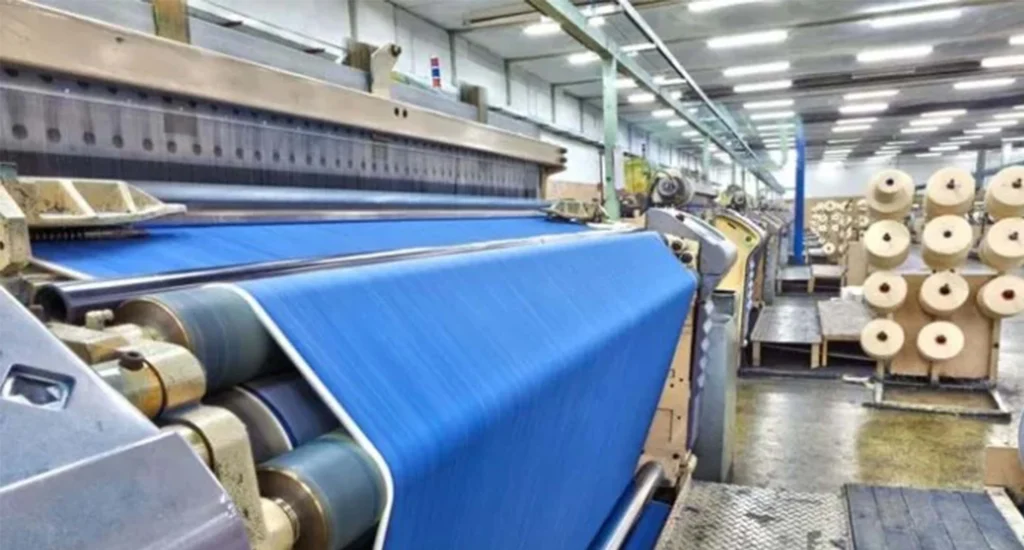Pakistan's Textile Exports Face Major Challenges as US Imposes 29% Tariff
- Abeera Marium Siddiqui
- April 4, 2025
- 3:36 pm
- 62
- Current Affairs

Pakistan’s textile exports are facing big challenges as the US imposes a 29% tariff. The textile sector, a large part of Pakistan’s exports, must now deal with this new barrier. This adds more pressure to an already struggling industry.
The US is Pakistan’s largest export market. It makes up 18% of total exports, worth about $6 billion a year. Around 75-80% of these exports are textiles like garments, fabrics, and other textile products. With this new tariff, Pakistan’s textile industry may lose its competitive edge in the global market.
Impact of the New Tariff
The 29% tariff on Pakistan is slightly higher than India’s 26%. But it is lower than the tariffs on Pakistan’s competitors, like Vietnam, Bangladesh, and China. These countries face tariffs ranging from 37% to 46%. This difference can make things harder for Pakistan’s exports to the US.
At the same time, India may have an advantage due to its lower tariff. Both countries export similar textile products, so US buyers may turn to India instead. While Pakistan may be somewhat shielded by higher tariffs on countries like Vietnam and Bangladesh, the competition will grow as these countries focus on Europe.
Immediate and Long-Term Effects on Pakistan's Textile Exports
Economists say the new tariff will hurt Pakistan’s textile exports right away. Exporters will struggle to keep their profits, especially with stiff competition from India, Bangladesh, and other major textile producers.
Pakistan needs these exports for its economy. Losing this market would be a big blow. The US tariff may force Pakistani businesses to rethink their strategies. Some businesses may look for new markets, while others may push for better trade deals to counter the tariff.
Regional Competitors: India and Others
In the global textile market, Pakistan competes with India, Vietnam, China, and Bangladesh. India, with its lower tariff, may benefit in the short term. But with higher duties, Pakistan may struggle to keep up in the US market.
Vietnam and Bangladesh may focus more on the European market. This will increase competition for Pakistan’s exports in Europe. While Pakistan has some advantage due to lower duties compared to these countries, the future remains uncertain.
Key Textile Companies Affected
Several big Pakistani textile companies will feel the effects of the new tariff. Companies like Interloop, Nishat Mills, Gul Ahmed, and Kohinoor Textile, which have a strong presence in the US market, will face higher costs and tougher competition as the tariff impacts their profits.
Other sectors, such as cement, steel, and food products, may also suffer from fewer export opportunities. Companies like DG Khan Cement, Fast Cables, and Matco Foods could see their US-bound shipments decrease, affecting their profits.
Export Breakdown and Economic Concerns
Despite the challenges from the tariff, Pakistan’s trade with the US has stayed in surplus. In FY24, Pakistan’s exports to the US reached $5.44 billion, with textiles making up most of that amount. But the trade surplus is shrinking as the tariff’s effects are felt.
Textile exports are key to Pakistan’s revenue. They also provide millions of jobs in the country. If exports drop, the country could face broader social and economic problems, worsening an already weak economy.
Shifting Trade Patterns and Future Strategies
Pakistan must adjust to these challenges. The government and textile exporters need to cut production costs and improve efficiency. Negotiating better trade deals and finding new markets, especially in Europe, could help.
The textile sector must also innovate and explore new ways to stay competitive. Adapting to these changes is crucial for growth, even with the tariff hurdles.
In the months ahead, Pakistan’s textile exports will face many tests as they navigate the new US tariff landscape.



